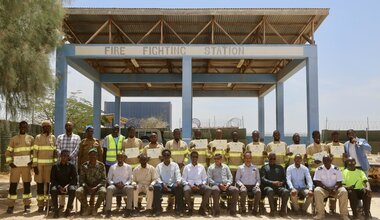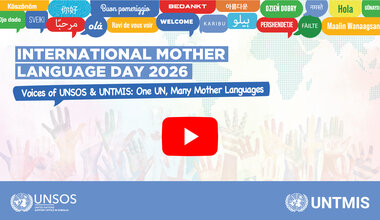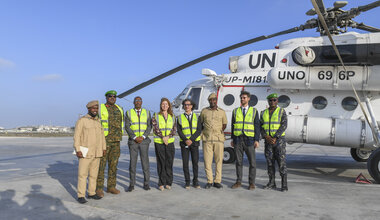Empowering youth, protecting the planet: UNSOS partners with Somali universities to train future environmental advocates
Mogadishu – Twenty-five students from SIMAD University in Mogadishu were given one day training on the practical management of wastewater and solid waste to help prevent pollution of the environment. The session took place at the UNSOS environmental installations, namely the wastewater treatment plants and waste management yard. This training aimed to equip students with hands-on skills for effective waste handling and environmental protection.
This initiative is spearheaded by the UNSOS Environmental Unit, with the aim of linking theoretical knowledge with practical management of the environment, for the benefit of fourth-year public health students. The initiative directly addresses the practical educational gaps in science, which is critical for Somalia’s environmental protection. “UNSOS is committed to supporting locals through the building the capacity as part of our environmental management system,” says Jama, UNSOS Environmental Affairs Officer.
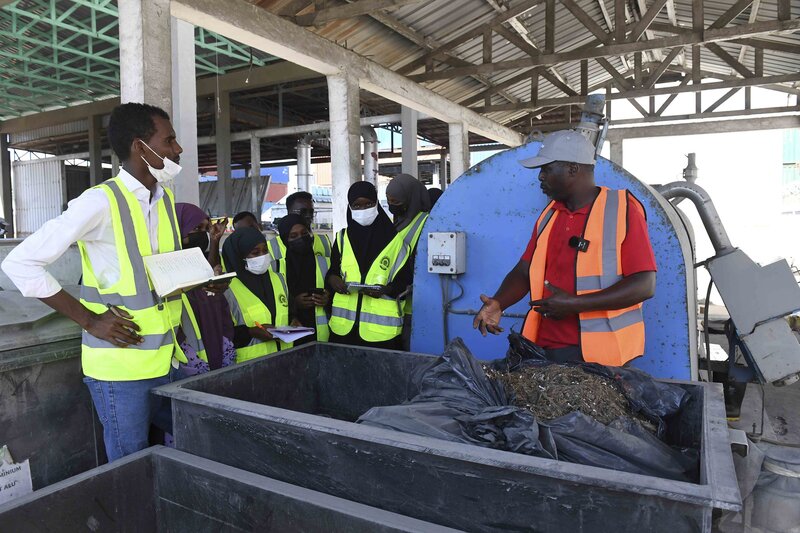
Since the inception of the program in November 2024, UNSOS has trained 58 undergraduate students in solid waste and wastewater management at the UN facilities in Mogadishu. Jazeera University was the first to partner with UNSOS on this initiative, and it has now been joined by SIMAD University. By collaborating with academic institutions, UNSOS aims to foster a new generation of environmental advocates and professionals who can contribute to Somalia’s environmental protection and public health goals.
“I have learnt a lot that will enhance my experience. I have practically undertaken what I studied in theory, Garbage is not all waste; it includes materials that can be beneficial to the people and the environment, instead of just being dumped around. We can profit from reusable and recyclable materials like plastics, rather than allow them to negatively impact our health and the environment”, said Muna Hassan Warsame, a passionate advocate for environmental change in her final year of Public Health at SIMAD University. =
The students’ first field visit was to a waste management facility, a central hub for waste collected daily from 43 designated points within the UN and African Union Support and Stabilization Mission in Somalia (AUSSOM) compounds. There, they observed the critical segregation process, a routine operation aimed at reducing the volume for final disposal and enhancing recycling efficiency.
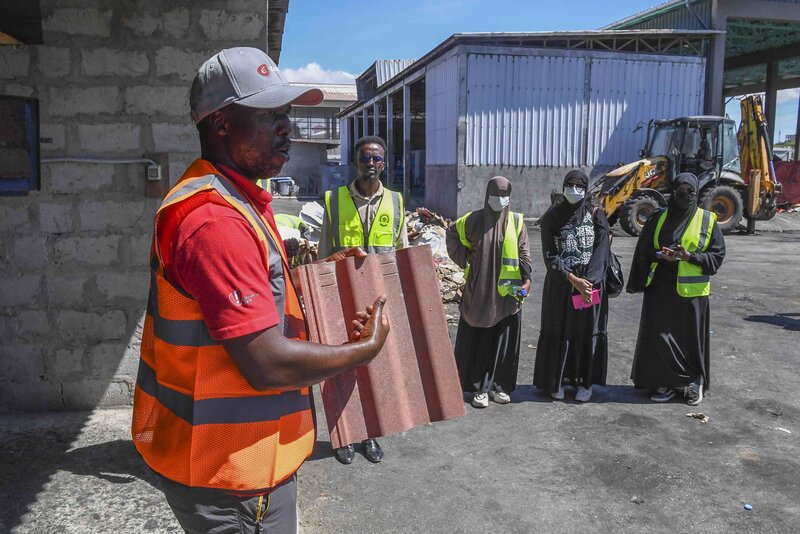
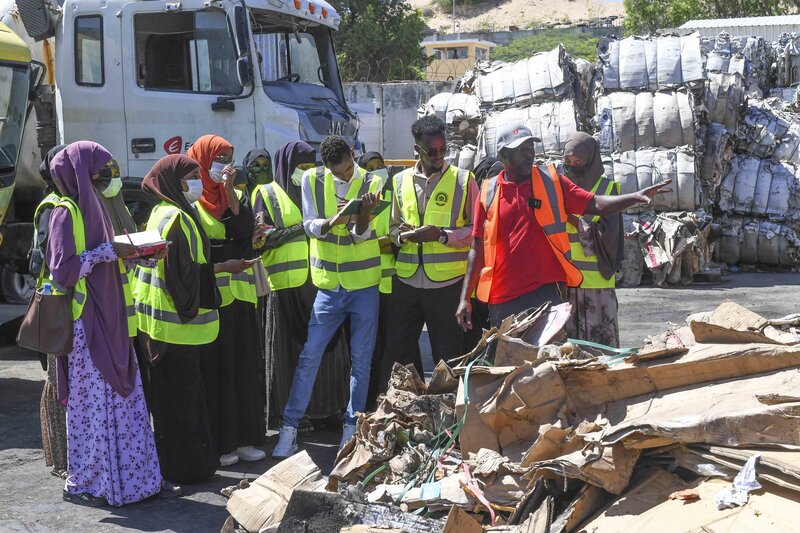
Student Salma Abdulkadir Mohamud emphasised the importance of the training, saying: “One thing I will put into practice is collecting waste properly instead of throwing it away randomly. I now understand that waste can be reused and turned into useful items - for example, soft drink cans can be repurposed into food containers.”
“This is like a training center for students and the locals. We train them to apply their knowledge in the community to protect the environment,” said Dennis Odur, a foreman with Ecolog, a privately outsourced waste management company.
“I want to raise awareness that some of the things we cook with or eat from may have originally been waste. By managing our waste better, we can make our cities cleaner and more beautiful,” Salma added.
Another fellow student, Alma Abdirazak Mohamed, shared her motivation after taking part in the training: “Many things inspired me. One of them was the desire to contribute my role in health-related fields, to bring positive change to my country, and to address problems affecting the community. I want to add value to the environment and public well-being”.
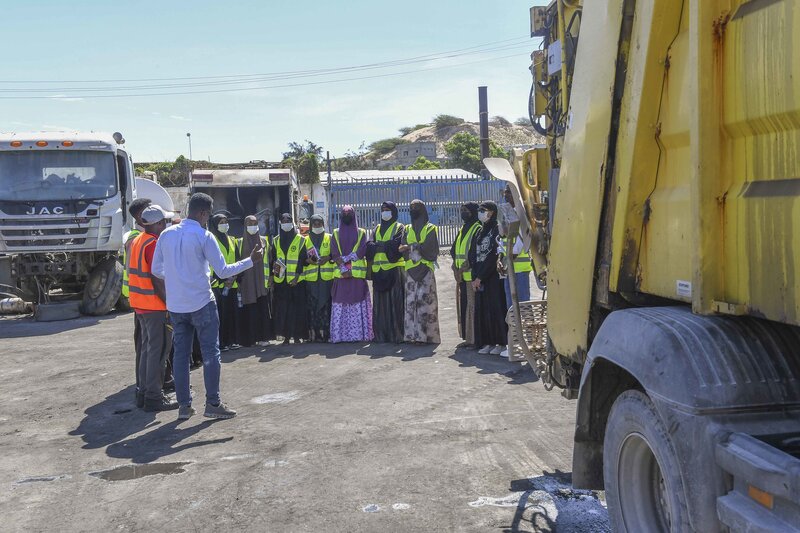
At the wastewater treatment plant, Ecolog supervisor Josiah Kiprotich demonstrated the three-stage treatment process, which treats about 300,000 litres of wastewater daily. “This treatment is vital for environmental protection. If wastewater is discharge without any treatment, it pollutes the environment and poses health risk. ,” said Kiprotich.
This involves first collecting wastewater in septic holding tanks from designated collection points, followed by a meticulous removal of impurities through oxidation, filtration, and ultraviolet disinfection prior to supply for non-potable water needs such as irrigation, dust control, and construction
Mohammed Abdi Hassan, a lecturer in the Department of Public Health at SIMAD University, thanked UNSOS for equipping students with the invaluable skills. He highlighted the training’s role in bridging gaps in their career trajectories for a sustainable future.
"This practical training is impactful for our students, providing hands-on experience in waste management and raising awareness of environmental issues, particularly public health challenges facing Somali communities,” Hassan said.
UNSOS continues to share their practical experience on waste management and environment protection with the Students in Somalia to raise awareness among the communities in protecting the environment for the current and future generation of Somalia.
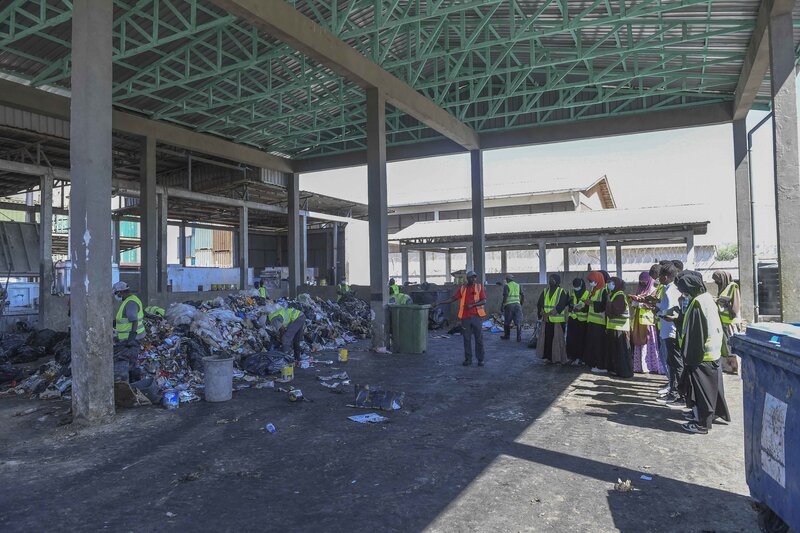
 UN
UN



